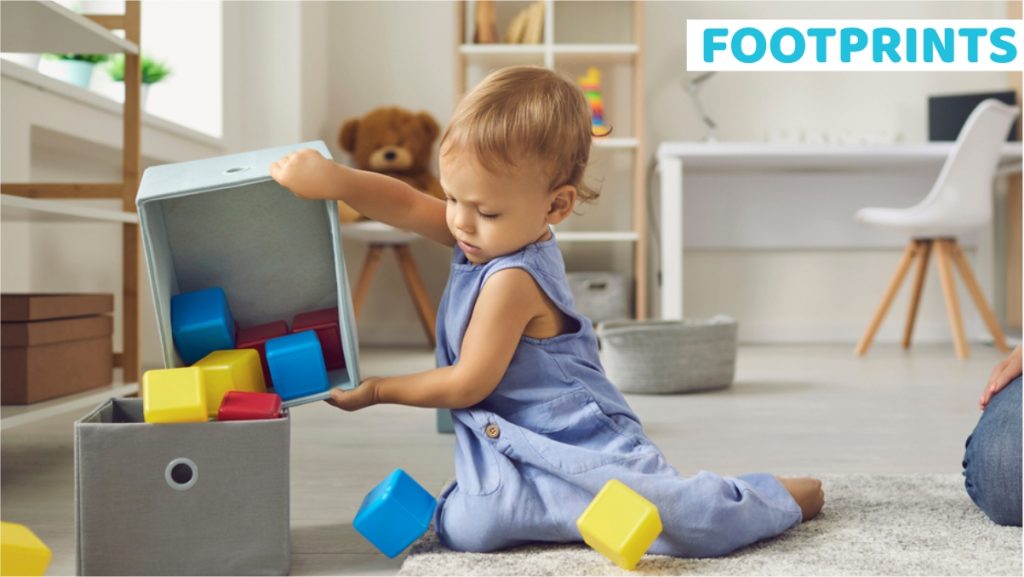

Once your child reaches the age when he or she starts to go to preschool, you will notice several changes. While the child becomes more independent they also start to question everything they see around them. With 90% of brain development taking place before the age of 5, this period is extremely important for the child. It is about time you borrow some helpful tips for parents from a preschool counselor of a top play school to make the most of this phase. So here goes:
1. Encourage Independence
Who wouldn’t want to cuddle that cute baby and run around fulfilling every single wish? Pamper that cutie patootie all right but do not hesitate from giving them age-appropriate tasks. Often times you would hear playschool teachers complain that while they encourage children to take care of their belongings and more in school, come dispersal time & the same children are seen being carried to their cars. While you may be confused about what you should do versus what you can let the child do, the thumb rule to follow is to resist doing what the child can do herself. Often times you may land up doing something for the child only because it is much quicker that way, but you wouldn’t want to save time at the cost of not making the child self-sufficient, would you? Allow the child to solve simple problems; they may not be perfect but it sure will fill them with much-needed confidence.
Pro tip- Praise is key. Children typically repeat behavior that gets attention.
2. Have predictable routines
Following a routine allows the child to know what is expected of them. In fact, the more predictable your routine, the more cooperative the child is likely to be. This is the exact reason why it is recommended that you follow a similar bedtime routine every night. It could begin with a bath, followed by reading time & then bedtime. When the child knows what to expect, bedtime will not turn into a power struggle. Similarly, a routine of washing hands before every meal or having a bath before breakfast each morning will see the child cooperating. It also works well to give prior notice before making any transitions.
3. Offer Choices
Your little one who now wants to assert his independence will benefit from being offered age-appropriate choices. So instead of cooking something for breakfast & then facing resistance, it will work far better if you give him the choice of two or three healthy options. Having chosen one himself, he is likely to eat it. Similarly, if the child isn’t sitting at the dinner table, you might offer him the choice of sitting for the meal or missing dessert. Pro tip- It is important to offer consequences that you have thought through and having offered consequences, to follow them through.
4. Let the child be bored
Now, this may sound like strange advice but is anything but that. Come to think of it, we work so hard to keep the child occupied & entertained 24X7. The net result is that we severely limit their creativity! Along with all the structured activities, it is essential to offer them time for free play. If they get bored during this time, so be it. Allow them to find ways to entertain themselves; it sure is going to come in handy to them in later life.
5. Let the child fight their own battles
So your child has entered into a conflict with another child. Soon as you get wind of it, what is your first response? Do you swoop in to settle the issue for them? If your answer is yes, you need to rethink. After all, you will not be there to resolve matters for the child or rescue him each time. Instead stay clear of the situation, unless, of course, the children have entered into a physical fight. As a parent, the focus has to be on preparing the child for the road as opposed to preparing the road for the child. Of course, if you think the situation could have been handled better, you will find coachable moments to teach them those responses.
6. Discipline the child
Some effective strategies that work in disciplining the child include distracting the child from short-circuiting a tantrum, as also involving the child in making amends. So if the child has doodled all over the walls, the child needs to be involved in cleaning up the mess. Another important aspect to remember is not to delay the disciplining act. So you are unhappy about a tantrum the child threw while at the mall on Monday, for which you canceled a trip that the child was looking forward to that was to take place on Saturday? Well, it isn’t the best way. By this time the child has forgotten about the Monday incident & your action seems harsh & random. Reprimand, where necessary, needs to happen when the act has taken place. So buying the child the toy that he wants, in order to avoid the embarrassment that comes from the child’s meltdown at the mall, will not take you much further.
7. Be a Role Model
Well, we have saved the most important advice for the end. A child does what he or she sees not what he or she is asked to do. It is imperative, therefore that you be a role model that the child can emulate. Reprimanding the child if he uses bad language & yet using bad language yourself does not make the cut. It is your actions that will send important subliminal messages to the child that the child will absorb!
To Sum Up
Focus on small coachable moments while you bond with the child to teach them important life lessons. With a consistent, firm & loving approach, you can rest assured that they will turn out to be fine individuals who will make you proud!
At Footprints, India’s top playschool, we focus on the child’s holistic development & teach them age-appropriate life skills that will stand them in good stead. Our firm belief is that every child has limitless possibilities and that as adults all we need to do is to nurture them and make them fall in love with the process of learning!
Here’s to raising a generation of self-reliant children with healthy self-esteem!

Amita is an experienced educator with over 30 years of experience. She has an outstanding understanding of child development, having worked with various age groups for prestigious businesses. She has been dedicated to handling Footprints’s Curriculum and Delivery department for the past decade. Amita’s credentials include being one of India’s few HighScope Curriculum certified trainers and volunteering as a course leader for Landmark Education, the world’s largest training firm.




